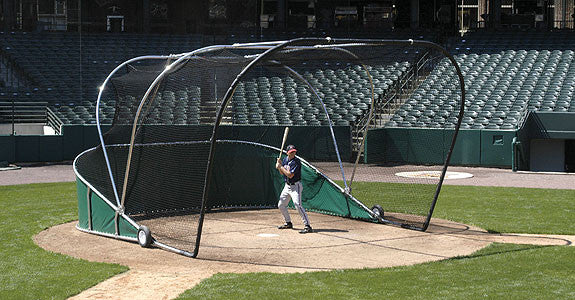Jeannie
thank you for the question would be happy to come in on as I've been faced with this very problem with my two boys and, so the kids that I've coached over the 40 years. This is going to be my coaches/dad answer.
There is no doubt in my mind you play for the team that is not highly ranked in your description. It has zero value for player development, player enjoyment, player advancement to sit on the bench. If you're not playing you're getting behind in a 10% playing time, top team really is nothing is nothing but late inning appearances, games that don't mean anything, games that are already lost or one that he would be getting in.
The only value playing with the team is the social interaction, and the prestige with that similar very thin when you're not getting to do anything to contribute. The one thing I can't see is how good he is and why he's only a 10% player, if there's a reason that he can overcome to become one of the 90% players and that's what he needs to do but he's going to do it by playing6 not sitting on the bench.
Then finally let me say one thing is a coach and a the may sound a little harsh this is 13-year-old baseball there no scholarships, there's no real glory outside of what you give it to yourself, there's going to be at least five more years of trying to become a player. When it really counts is in the high school, or the 17 and up summer teams. But he'll never make those sitting on the bench. He needs to be playing. Now if a boy or girl is a player and they are playing and they should be moving up within their age brackets play the top competition that's available. But they have to be able to play and succeed.
Let me ask you a question when I was coaching basketball in a very small high school I was the JV coach. We had a senior that was not very good in fact he was going to get cut as a player but he was a super kid is a person so we gave him the choice, a rare choice of high school, that as a senior he could play on the JV team and play not to set. He chose to be the 13th man 12 man squad at the high school level instead of to play at the JV level. So in reality he didn't play at all and all the games that season he probably got on the floor maybe a total of five minutes. So my question is was he right or wrong. To me that's the same question you're asking here is better to sit or better to play. It's always better to play in my mind and in my advice.
Coach Arnald Swift
34 years of teaching, 40+ years of umpiring, 40 years of coaching at all levels from youth to D1, coached almost every sport there is one point of the other.
I would like to say a few words about young players or even older players concentrating on the single sport to early in life. This is going on because my grandson all of a sudden is decided he didn't want to play basketball this year that he only want to play baseball. I was in particularly in favor but he is 10 years old and he's going to change his mind more than once that's a guarantee. What's happened on a practical level is that there is no baseball for him to concentrate on so the only thing he's doing is going to the cage once in a while it hitting with that's not really practice. But more importantly I think it's a matter he's not getting the life experiences that he would enjoy playing all the games with all his friends. I encourage parents to really get their kids to try many different things. Sports aren't any different than food, entertainment, academic interests, arts and science, all that kind of thing. I don't think there's a parent out there that doesn't hate when their kid just sits in front of the TV or in front of the videogame. But I really don't see that much difference between those two activities only doing one sport during the developmental years.
I'll even add a second story of a young man I know in California that only play baseball up until the time you said during his freshman class, 2016, at that point he decided he didn't like being left out social circle so he was going to play football. As it turned out he was relatively good enjoyed it and says he's going to do it again, now he's playing freshman basketball again doing very well, and then in the spring he will play baseball. The real point of this is that he tried to stay with baseball only up until the time he was 14 years old all of a sudden he decided that he would like to try these other things, you did and he's turned out to be good at it and enjoying all the benefits. Therefore I think the take away would be it's never too late to start doing other things.
If we as parents, grandparents think they were going to build an athlete it's going to get college scholarships, pro sports, or in any way have sports be part of his life from a financial side then were fooling ourselves. The mathematical odds of these things happening are extraordinarily high and then the truth is we spend more money trying to get this accomplished that we never spend on the scholarships if we didn't have the sports. Sports and competition are for enjoyment in the real benefit comes from playing the sport, being part of a group, and having your family be with you while you're doing it.
I wrote this both from first-hand experience with my boys, my grandkids, and what I believed as a coach for over 40 years. What are your thoughts?
Question from a coach: We have players that are constantly late to practice, one boy in particular. What is the best way to handle it. He is one of your best players. Should we not start him, not play him, punish him by running. What do you think?
Frustrated Coach Schmidt
==============================
Coach this is a constant problem with coaching, and every coach that is actually coached more than one day he has had this problem. The first time you might talk to him and his parents if there are involved but with the ongoing problem there needs to be some kind of discipline. And you have to balance it between penalizing the entire team, being fair getting your point across to the player. So really it probably needs to be a hierarchy of what you're going to do. This first one may be a little late but I found if you make them stay after practice even if it's just for a few minutes telling them you need to make up some work they really don't like that and the parents will take notice also. If you have a young enough team that may work very well as parents get to be nervous that you're eating into their time.(Not to mention your eating into your time by staying after). The second level to just send the player home or exclude him from practice. This works very well with school team player then the next practice have him to physical drills as punishment. What we want to do in all this is not have him quit or harm the team. BUT the last deal is missing playing time or a game.
Explain that he took time from the other players, the coach's, parents all those that are supporting him Now we have to take time from you to impress on you the importance of being there all EVERYONE not just yourself.
Darryl to Coach Arnald Swift
I was holding the radar gun (Striker (sic) STALKER but I don’t know the model number) for my nephew. Being a physicist rather than knowing anything useful about baseball, I noticed it read to one decimal point from which I inferred it was measuring speed to the nearest 0.01 mile per hour and the rounding to the nearest 0.1 mile per hour. I asked him if he knew what the accuracy of the gun was and its precision and he didn’t so my 1st question is what is the accuracy and precision of your guns. My second question is how close to parallel to the balls flight path must the gun be pointed before it begins to reads wrong due to the misalignment and does anyone ever worry about that? I think he is very happy with the gun, I was just wondering about these things so thought I would ask.
==================================================
Darryl
I apologize for not getting back to you with my thoughts and comments on your letter, somewhere other this got send it to spam and I just discovered it today I had no means or way meant to slight you because the question is interesting. I taught math and computers and so I also think a little bit like yourself.
As far as the accuracy of the guns even the most accurate of guns don't actually read in the hundreds of a mile, it's common to see 10th of a mile but when we use the professional guns made by Staker (most popular among professionals) they read in miles per hour not hundredth or tenths from a radar gun on a baseball or any other sports ball.
A radar gun reads in a direct line best so when doing baseball to set up behind the pitcher or behind the catcher in a straight line to get the absolute most accurate reading. Then also remember that the radar field measures about 30 feet away from the location where the ball started or stopped. It's interesting to note that the speed of the ball out of the hand at 30 feet is faster than the ball at the catcher 30 feet away into his glove. Simple physics in a way the ball is actually slowing down on its way to the plate and perception but it is a little bit slower as it reaches the plate. For baseball people the most accurate is at the plate because that's where the batter has to hit it.
Now the angle of reading the flight of the ball is ideally 0 to 10° but you can get relatively accurate readings up to about 20° of variance the good guns have the ability to do some math internally and get an accurate reading from off a direct line. And one other factor that you did mention is how far away there are some smaller versions, cheaper versions, that need to be within about 20 to 30 feet to have any accuracy at all then the professional type guns are accurate through screens, batting cages, that kind of material from up to 300 feet. I've always found it interesting that the manufacturers of police radars, have the same exact radar guns available to the sporting industry. They just change the recording devices to meet the needs.
Hope this helps in your thoughts and your curiosity and I certainly appreciate your interest and sorry about the time lapse.
Coach Arnald Swift BATCO
 Stalker Radar Gun Sport 2
Stalker Radar Gun Sport 2
Dear Coach
I coach baseball at the 13-15 Babe Ruth level. We work hard with our pitchers holding runners on to avoid giving up really easy stolen bases. At this point, I think our pitchers are doing well at this task. I have a question or two about the second baseman and shortstop and their jobs of helping hold runners on at second base. I feel if we are going to give up a steal of third base, the runner that steals should at least be held on 2B properly before he earns that stolen base on us.
1) Are there different responsibilities for the two positions in regards to holding the runner at 2B vs. a left handed or right handed batter?
2) What should the footwork for the short stop and second baseman involve?
3) Should they be saying anything, tapping their gloves, or etc.?
Thanks for any tips you can offer me in regards to answering my questions.
Dear Kelly
You have this pretty well in hand and I answer that because of your suggestions and thoughts. The decision on who holes a runner at second with distractions, playing close to him, are all dependent upon the batter and where he's most likely at the ball. The general answer is whether he's left or right handed but there certainly can be exceptions as you get to know your opponents. There are several ways simply bluffing, going always a bag, living in front of the runner and backing away, moving up directly behind the runner so he knows you're there. All these things have to be done in synchronization with your pitcher so that you don't get caught out of place. Now your pitcher can help you with bluffs every once in a while, second and third looks (very is looks at the runner), pickoff plays even when there not successful which is second are pretty rare but they keep a record closer. But you are right you got to do a combination of things and you need to make sure a runner knows you're there otherwise he'll become very comfortable and get an extra step or two when the balls hit, we wants to steal, distracting your pitcher, so is a variation of what I've said and above what you said.
Coach Arnald Swift
My name is Trevor, and I have been catching for 7 years. Over the summer, I made sure to study all the footwork of a catcher and everything I could think of. I am currently a freshman in high school playing in open off season to prepare for tryouts in February. I keep telling my coach that I know how to catch, but he won't let me catch at practices or in our scrimmage games. Instead he puts in me in the outfield and plays everyone that he knows in the infield. What can I say or do to make him let me catch? I know I am a good catcher, but every time he asks for catchers, he ignores me, or says that I can catch in a game and forgets I am a catcher. What do I do?
Trevor: Yours is an interesting question, because it has several elements in it that are inferred and are direct questions. Let's handle the direct question: if you have worked that hard catcher for seven years then you really should be pretty decent, but never to get a chance to catch is a little odd. You indicate that you'd be willing to catch batting practice, or even just in practice I would certainly encourage you to go directly the coach and say your willing to catch BP or in the bullpen just so show that I can do it. Would you please give me that opportunity. When you ask it directly like that then he will be forced to give you a direct answer and no coach the world pass up a catcher wanting to work in those two jobs. Now you infer that you tried to and tried to catch and your coach put you out in the outfield with the vague promises he will catch you in a game. Something is wrong there no coach would put the player into the game as a catcher without have watching him go through practice, drills, and all the things of the catcher is required to do. Second question comes about how well are you in the outfield are you more valuable out there defensively along with your hitting skills. As a coach I have to make that decision. Then the other question that you didn't ask but a coach has to decide how good are the players in front of you, as much as you want to work at it has much you have worked at it are you still not as good in all the skills in a catcher takes.
I'm a long ways from saying don't continue to work because your letter indicates that you're willing to work, do all the hard jobs to show you can catch and then in turn try to get into the games as a catcher and you must just continue down that road. But be honest with yourself when you look at how you helped the team the best and maybe the coach is looking at it from that direction not just what you would like to do. Hang in there and continue to work at catching but at the same time to your job when you're playing the game at all those other elements that are involved.
Best of luck let me know how it turns out.
Coach Arnald Swift
Dear Coach
I am coaching a 9 year old baseball team and have been discussing coaching techniques with my assistants. My assistants think we should make players run laps and do push up when they constantly make the same mistake. I am of the opinion that repetition and showing proper technique is the proper way to break habits and correct mistakes. What is your opinion and when should discipline such as laps and push ups be used on the baseball field? Should lack of effort or hustle result in laps and/or push ups and if not what is your recommendation?
Thank you
============================================
Dear Mark
I coached nine-year-olds and laps or out to the fence and back does have its place but in my opinion that places only to get their attention not in any way shape or form for mistakes. Your coaches along with yourself need to teach technique and do the drills that allow the techniques to be used, and reinforce what's correct in what you're trying to teach and running laps and doing push-ups does not do that. Now the separate question is lack of hustle or lack of effort I found that setting against the fence is the worst punishment of all if you don't want to hustle you don't want to try then we don't need you bothering the other people make them sit up against the fence and just watch. So I can answer your question in three ways yes you can make them run to get their attention, but you don't make them run or do push-ups for mistakes in skill technique work, then isolate them if they don't want to pay attention or hustle they're just taking away from your time and the players that are trying to work and learn . You have to distinguish between discipline and punishment. Discipline is the ability to concentrate and do what you are asked to do at the time it needs to be done. Punishment is running, push-ups, isolation and they're meant to get a players attention and teach him the value of paying attention and learning discipline. As a coach you need to distinguish between the two of them with your players.
Best of luck.
Coach Arnald Swift
Mixing Sports August 31 2015, 0 Comments
Dear Coach
I have coached baseball for years and have told my kids that baseball and golf do not mix. A lot of golf can be a detriment to your baseball swing. Am I off base with my teaching.
Coach
I can't really agree with you to give the short answer. I see athletics as all independent. When I first started out baseball players did not lift weights, but now we know how to do it and the increased strength has not be gained at the loss of flexibility (that was the worry).
I don't believe one skill takes away from another. We have too many good and very good golfers with in baseball some of them almost PGA caliber.
I understand what you are asking but I think it fallen in the categories of "It sounds like a good idea" but in truth no factual basis.
Sorry to disagree but you and I are two coaches talking.
Coach Arnald Swift
Hello Coach,
My question is what can we do about a hitter that is habitually late with her swing? It doesn"t seem to matter if the pitch is fast or slow!! Her mechanics and bat speed are great! She will be a sophomore at UW Whitewater this year. If she doesn't correct this problem soon, I don't think she will make the team this fall.
Thanks Tom
Tom
You're concerns are well-founded, because if the situation is as you describe no matter what pitch speed or type that she is always behind and misses the ball or hits it to the right side I will almost guarantee that
she's thinking too much.Here's a few things that you might try and ask her to do which by the way she has to do you can't do that for her.
1. While she is standing in the on deck circle she is to review several facts so she's not in her mind before she ever gets into the box-- what did this picture to me last time, what's the situation I'm going to be faced
with outs, runners, defensive position anything that could affect my time at bat she needs to have those answered within her mind before she ever gets into the box.
2. During practice she needs to be told to swing at and hit every pitch no matter what. What this is going to do is take away any thought process and you will be amazed many if not all the pages she puts the bat on.
I've even done this as a coach in a game but I'm going tell you right now her coach is not going to allow it during college game but she might pull it off in practice situations, scrimmages, doing our own.
3. Do this drill against the machine or against a real pitcher and that is what the bat down and watch the ball making a decision whether to swing or not mentally and never really doing anything if she could find the
time and the ability to look at 10 to 15 pitches with no bat it will make a big difference in how she's looking at pitches and in making the decision.
Because in a nutshell that's the problem she's thinking too much and therefore always late and always behind so we need to try to get as much of that out of the way before she gets into the box.
I hope some of this create some thought and even some help and best of luck let me know how it all works out.
Coach Arnald Swift
===========================================
Dear Coach
My 8 year old has a good swing but does not hit the ball in the game. We play in a coach pitch league so the pitches are normally very good. Can you give me some suggestion for us to work on.
============================
I do understand your problem with little kids. As a matter of fact I do have a couple of things that you can do that will really help.
First and foremost you need to find yourself a protective screen for in the cage and place it in front of home plate. Then get you a 5 gallon bucket and turn it upside down and set behind the screen set up about 10
feet away from the batter. Now what you need to do is reach around the outer edge and underhand toss the ball to your batter. This is called front toss in it works with little kids better than soft toss from the side. You
will notice very quickly that for some strange reason, it must be the physics, that little kids can hit a ball thrown underhand. Then after you've done at for a couple of rounds give each kid like five swings have them
hurry in and out so they keep moving like you said the attention span is a big deal. Then in the third or fourth round flip it over hand from the same position so that you're down to there level and not standing above
them. You will be surprised how much better they hit I wouldn't even worry about the pitching machine until the game. What you're trying to develop his hand eye coordination.










 Stalker Radar Gun Sport 2
Stalker Radar Gun Sport 2